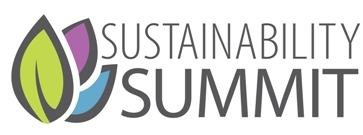The agricultural sector in Africa remains significantly under-invested, but more support frominternational lenders and investors will come with stringent environmental, social and governance (ESG) requirements.
Investment in agriculture in regions like East Africa is already growing. Here, economies are primarily agriculture-based, with the sectorcontributing an average of two-thirds of GDP and providing jobs to the majority of citizens. As one indicator, investments in agricultural technology (AgTech) in this region – focused on Kenya, Uganda, Tanzania and Rwanda – rose from almost zero in 2001 to $425 million between 2015 and 2017[i].With some 60% of the world’s uncultivated land, Africa generates only 10% of global agricultural[ii] produce – signalling the significant potential of agriculture to lift the continent’s economies. Taking advantage of its comparative advantage, however, will need a firm commitment to sustainability, according to SRK Consulting partner and principal environmental consultant Darryll Kilian.
“While there is scope for agriculture to help drive broader economic development, land is a sensitive issue that needs appropriate policies and careful negotiation of ESG risks,” said Kilian. “Large-scale agriculture demands considerable land-take posing a number of risks; for instance, it can significantly impact biodiversity, water resources, livelihoodsand human rights, if not carefully planned, assessed and managed. Notwithstanding these human-environment interactions,it is imperative that project proponentsunderstand the relationship between subsistence and commercial farming.”
He highlighted the African Union (AU)Agenda 2063 focus on investing in modern agriculture, while addressing climate change issues and other environmental factors that pose risks to the sector.Under the Comprehensive African Agricultural Development Programme[iii] (CAADP) framework, the AU is expecting African governments to raise their investment in agriculture and rural development to 10% of national budget spend. This hopes to achieve agricultural growth rates of at least 6% a year.
“Initiatives like these also aim at building the resilience of communities and ecosystems in the dry lands of Africa by combating land degradation, desertification, loss of bio-diversity and climate change[iv],” he said. Key financial institutions like the International Finance Corporation, the World Bank and the African Development Bank already apply strict ESG conditions to their financial support, he noted.
Agriculture’s positive economic impact in Africa is enhanced by the range of upstream and downstream processes it can initiate or foster – including food processing. A sustainable approach to agriculture also recognisesthe value of the various by-products involved, said Wouter Jordaan, partner and principal environmental scientist at SRK Consulting.
“For instance, while sugar cane is an important crop for sugar production, it also has useful by-products that can improve the resilience and sustainability of this sector,” said Jordaan. “Bagasse is a renewable energy source that the sugar industry generates, which many producers use to supplement coal-fired generation –thereby reducing greenhouse gas emissions. There is even a trading market in bagasse.”
Through the innovative use of all aspects of sugar cane, the industry canbecome more involved in the production of ethanolas a bio-fuel, degradable bio-plastics, and molasses solids for livestock feed. These avenues contribute both to agriculture’s multiplier effect and to its resilience – especially in a global market where ‘dumping’ of farm produce can have catastrophic results for local farmers.
He noted that the growth in agriculture was also likely to bring its own impacts on resources like water, another important reason why ESG factors need constant attention. Farmers around Africa will need ongoing training and support to build these considerations into their plans and practices. Tools that allow farmers to make better use of their data – from fuel and fertilizer use to production and yields–will also become increasingly vital for their sustainability.
“Financial institutions themselves are looking for better ways to assess sustainability risks when considering loan applications from agricultural projects,” he said. “SRK is currently involved in a development agency-funded initiative to help lenders to understand the most important ESG and risk indicators for projects in this sector.”
“The aim of the project is to assist the financial sector to assess andpromote ESG performance, which can catalyse other players in agriculture to raise their game and become more sustainable,” said Jordaan.The methodology and supporting tools arealigned to the IFC Performance Standard, as well as the Sustainable Development Goals.
The development and application of ESG standards for agriculture will also facilitate access by African producers into markets where consumer expectations are increasingly driven by concerns about supply chain ethics, climate change and product provenance.
[i]https://theexchange.africa/regional-markets/east-african-trends-a-focus-on-east-africas-agribusiness-investments/
[ii]https://www.africa.com/top-investment-opportunities-in-africa/
[iii]https://au.int/en/agricultural-development
[iv]https://au.int/en/agricultural-development




About SRK
SRK is an independent, global network of consulting practices in over 45 countries on six continents. Its experienced engineers and scientists work with clients in multi-disciplinary teams to deliver integrated, sustainable technical solutions across a range of sectors – mining, water, environment, infrastructure and energy. For more information, visit www.srk.co.za
